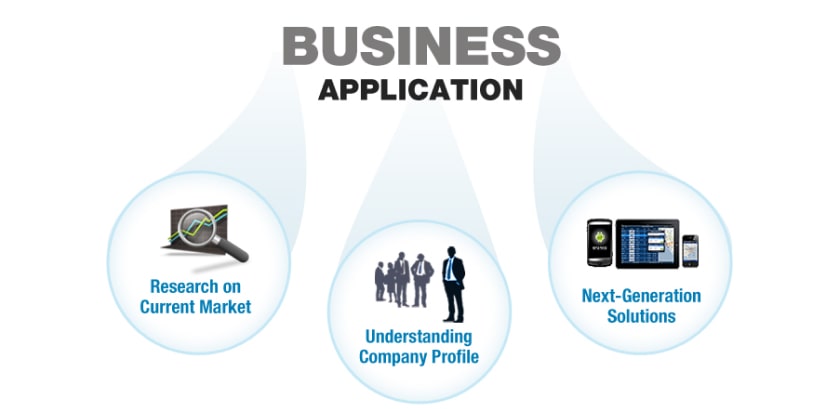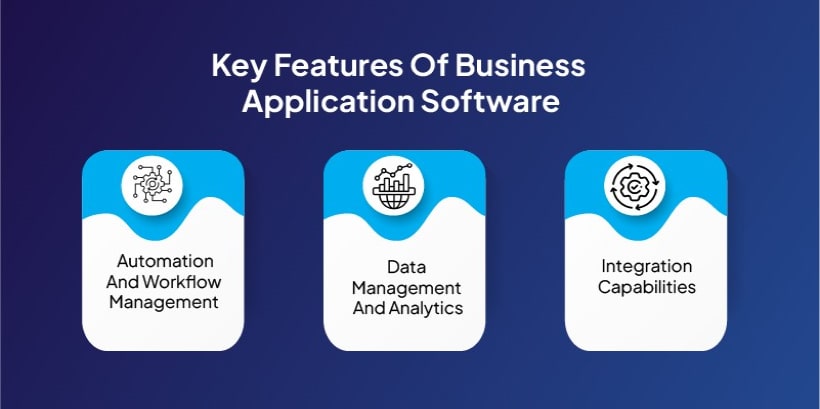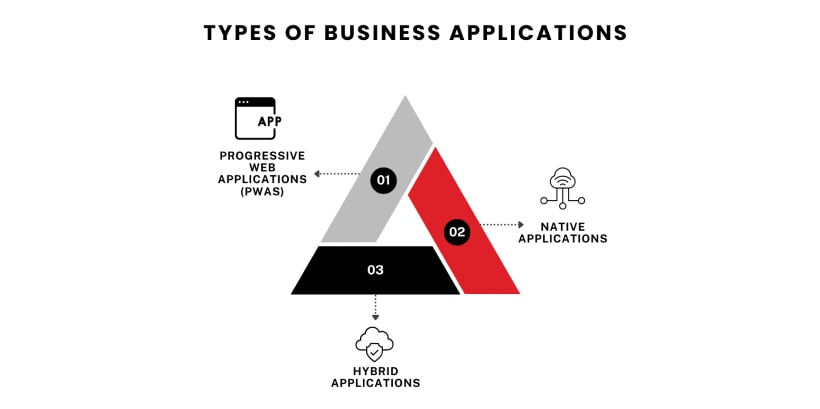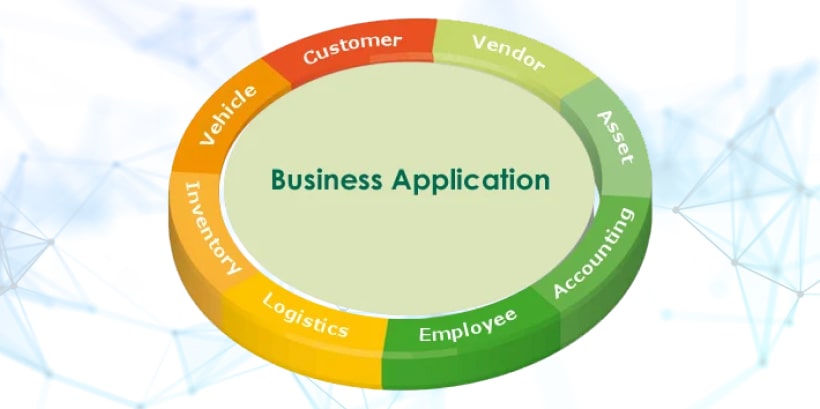The Future of Business Applications in a Digital World
9 MIN READAs per a report by Allied Market Research, the global enterprise application market size was valued at around USD 238.36 billion in 2020. Experts project that it might reach approximately USD 527.40 billion in 2030. This data highlights the skyrocketing demand for business applications like CRM.
Software developers are responsible for designing and developing specific software programs, which are also commonly known as business applications. These are vital for organizations to manage operations, streamline workflows, and achieve their goals. Business applications also cover a range of software solutions that handle diverse business needs. This ranges from managing customer relationships to tracking inventory.

Table of Contents
ToggleWhat Are Business Applications?

Key Features of Business Applications

- Automation: Automated workflows reduce manual errors and save time.
- Scalability: Business applications grow with your company, ensuring long-term usability.
- Customization: The ability to customize features according to business needs is a must.
- User-Friendly Interface: A well-designed interface ensures ease of use, even for non-technical users.
- Integration: Seamless integration with existing systems like ERP, CRM, or HR platforms enhances efficiency.
- Cloud Accessibility: Many business applications are cloud-based, enabling access from anywhere.
- Real-Time Analytics: Business intelligence applications provide insights for data-driven decisions.
Types of Business Applications

- Customer Relationship Management (CRM): As a business application, CRM focuses on improving customer interactions and relationships.
- Business Intelligence Applications: Provides real-time insights through data visualization and reporting.
- Enterprise Resource Planning (ERP): Manages core business processes like finances, supply chain, and human resources.
- Project Management Tools: Facilitates task tracking, team collaboration, and deadline management.
- Custom Applications: Tailored to meet specific business needs, often developed by a .NET application development services provider.
- Accounting Software: Helps businesses manage their finances efficiently, like salary, dues, incentives, and taxation.
Examples of Popular Business Applications

- Microsoft Office 365: A suite of productivity tools for document creation, collaboration, and communication.
- Power BI: A business intelligence application for data analysis and visualization.
- Slack: A collaboration tool for team communication and file sharing.
- Salesforce: A leading CRM platform for managing customer relationships.
The importance of business applications

- Accuracy: Automated processes reduce human-generated errors, ensuring data reliability.
- Efficiency: Computer business applications automate mundane tasks, allowing employees to focus on strategic activities.
- Scalability: As businesses grow, the right business application scales to meet increasing demands.
- Collaboration: With the help of business app services, like SharePoint application development services, you can enhance teamwork through better communication and shared resources.
- Data-Driven Decisions: With real-time insights from business intelligence applications, leaders can make informed decisions.
How Computer Business Applications Enhance Productivity?

- Organize data efficiently
- Enable remote work through cloud-based solutions
- Automate administrative tasks
Mobile Applications: The Future of Business Tools

Benefits of Opting for Business Applications

- Time- Saving
- Cost Efficiency
- Data-Driven Decisions
- Improved Productivity
Common Challenges with Business Applications

1.High Initial Costs
2. Scalability Issues
3.Complexity in Customizatione
4. Data Security Risks
Tips for Choosing the Right Business Applications

- Identify Your Needs
- Focus on Integration
- Prioritize Training
- Monitor Performance:
- Choose the Right Software:
Bottom Line
Frequently Asked Questions
Table of Contents
ToggleContact Us
